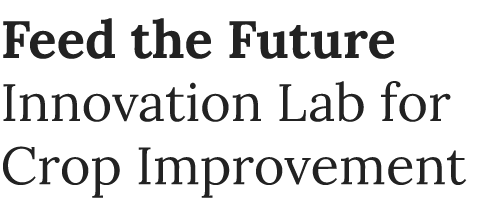The Feed the Future Innovation Lab for Crop Improvement, led by Cornell University, has been awarded a second five-year, $25 million grant from the U.S. Agency for International Development (USAID) to continue advancing its mission of improving global food security and agricultural resilience. This renewed funding will enable ILCI to strengthen its interdisciplinary efforts to support demand-driven, socially responsive crop improvement programs in key regions around the world.
Established in 2019 with an initial $25 million grant from USAID, the Innovation Lab for Crop Improvement (ILCI) has emerged as a global leader in developing breakthroughs for public plant breeding programs in low-resourced countries. In its initial phase, the Lab collaborated with National Agricultural Research Institutions (NARIs) across 11 countries to advance crop improvement initiatives designed to address food security needs in Central America, the Caribbean and sub-Saharan Africa.
By creating and deploying crop-agnostic digital tools, technologies and methods, ILCI accelerated breeding cycles and capabilities and identified institutional and socio-cultural barriers to innovation. The Lab’s pioneering work in developing market-driven solutions, improving crop varieties and forging international partnerships built a foundation for future progress.
Now entering its second phase, ILCI is poised to significantly amplify its impact. Over the next five years, the Lab will refine its approach and deepen global collaborations, positioning itself to deliver transformative advancements in crop improvement. ILCI aims to catalyze transdisciplinary research, driving innovation by integrating agricultural, environmental and social sciences for maximum impact. This approach will not only improve crop varieties but also help address broader development challenges by focusing on sustainable agricultural systems and climate-resilient practices. By doing so, ILCI will further enhance food security and bolster resilience in the face of growing global challenges.
“Our mission at the Innovation Lab for Crop Improvement is to drive lasting, sustainable change in how new crop varieties are developed and made accessible to farmers,” said Stephen Kresovich, ILCI director and professor of plant breeding and genetics at Cornell’s School of Integrative Plant Science (SIPS) and the Robert and Lois Coker Trustees Chair of Genetics at Clemson University. “Cornell’s legacy in agricultural innovation positions us to lead global efforts in this next phase, advancing scalable and equitable solutions that will bolster food security for the most vulnerable, in alignment with the U.S. Global Food Security Strategy.”
Phase II of ILCI will focus on scaling up crop improvement and capacity-building efforts across four key regions: Central America and the Caribbean, West Africa, East Africa and Southern Africa. By combining expertise in biological, computational, and social sciences, the Lab will address critical challenges to crop breeding, such as climate resilience, equitable development and the sustainability of agricultural systems.
Through its transdisciplinary approach, ILCI aims to strengthen food security in key regions and catalyze crop improvement advancements that can be adopted in the United States. The goal is to accelerate breeding cycles, enhance genetic gains and strengthen market linkages to ensure that improved crop varieties are widely adopted and drive long-term, sustainable impact.
As part of this next phase, ILCI will consolidate its research and development efforts across a diverse range of crops and expand the impact of regional networks. A central focus will be on empowering public- and private-sector scientists in target countries, supporting local researchers and institutions to take the lead in advancing crop improvement initiatives tailored to their specific needs.
“USAID supports developing improved crop varieties and connecting breeding efforts to systems that deliver seeds at scale, driving gains for smallholder farmers and local markets. The Innovation Lab for Crop Improvement plays a key role in Feed the Future’s food security strategy, and its extension will boost capacity to sustainably and inclusively enhance global food and agriculture productivity,” said Rob Bertram, chief scientist in USAID’s Bureau for Resilience, Environment, and Food Security.
ILCI’s extensive network includes collaborations with private seed enterprises, global initiatives such as those from CGIAR, and regional organizations in the Americas and Africa. These partnerships will be critical in facilitating the adoption of improved crop varieties, driving economic stability, enhancing food security, and promoting equitable agricultural development—particularly in regions most vulnerable to the effects of climate change.
“This renewed support from USAID empowers Cornell to continue leading transformational efforts in international agriculture,” said Benjamin Z. Houlton, the Ronald P. Lynch Dean of Cornell’s College of Agriculture and Life Sciences (CALS). “By advancing innovative, climate-resilient solutions, we’re not only addressing today’s pressing food security challenges, but also building a more sustainable future for agriculture worldwide.”
Inclusivity and interdisciplinarity remain at the core of ILCI’s mission. The Lab aims to develop market-informed crop varieties, ensuring breeding programs are aligned with the needs of farmers and consumers. This effort will be coupled with continued collaboration with other Feed the Future Innovation Labs and alignment with the State Department’s Vision for Adapted Crops and Soils (VACS) initiative, leveraging resources to maximize impact. Faculty and researchers from across the College of Agriculture and Life Sciences and Cornell SC Johnson College of Business are engaged in supporting ILCI’s unique work and mission, including from the Plant Breeding and Genetics Section in SIPS, the Department of Global Development, and the Dyson School of Applied Economics and Management.
With this new infusion of USAID funding, ILCI is poised to make significant strides in addressing future global food demands, while mitigating the risks posed by climate change. The Lab’s flexible, comprehensive design is engineered to create resilient, sustainable crop improvement systems that are ready to meet the agricultural challenges of tomorrow.
ILCI is a collaborative program, led by domestic scientific experts from Cornell, the U.S. Department of Agriculture Agricultural Research Service (USDA-ARS), Clemson University, Colorado State University and the University of Texas at Austin. ILCI is one of two USAID-funded Innovation Labs with whole or partial leadership based at Cornell, alongside the Feed the Future Innovation Lab for Food Safety (FSIL).



